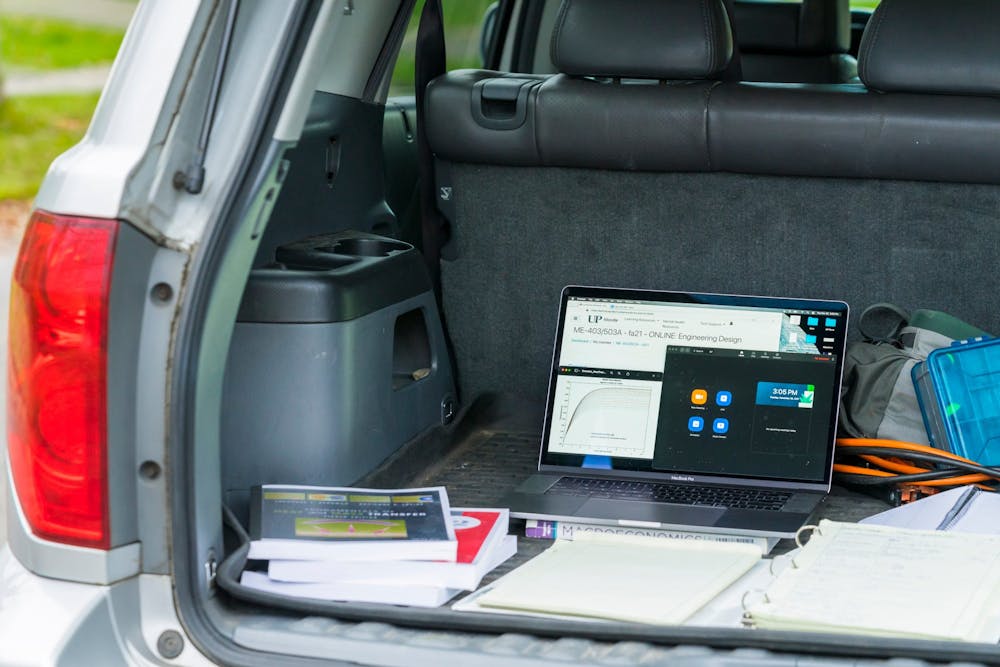We are about to conclude the most normal semester we have had in over a year. Although many of us have enjoyed being back in the classroom, some students took advantage of the online classes that were still available, and next semester, that’s going to be much more difficult.
The bottom line is that many students have adapted to a hybrid schedule, taking advantage of the eliminated commute times and flexibility. Next semester, 95% of classes will be held in-person, up from 82% this semester. This could be a problem for those who have become reliant on a more online-centered class load.
Online learning can provide the flexibility that students with mental health issues, jobs and other responsibilities may need in order to succeed in school. We encourage the administration to keep 10% of classes online going forward to help afford students who need this flexibility.
During the pandemic, mental health struggles were highlighted in higher-ed more than ever before. Virtual learning allowed us to attend classes while also giving students a break when they needed it. The ability to shut off the camera and take classes from a safe place at home gives students more freedom to take care of themselves.
By keeping some select classes online, students can add this more accommodating option to their schedule as they see fit and hopefully excel in an environment that best suits their needs.
Virtual learning also provided increased flexibility for students who needed to attend jobs outside of school. Working and being a full time student can be extremely stressful and can hinder a student’s ability to learn and succeed. By having online options, students would be able to take their classes from a different location or while on a break from work, rather than on campus. This can help with commuting times and lower the stress of juggling work and the life of a full time student.
The working world has already implemented work-from-home policies, recognizing the advantages it brings for workers. During the height of the pandemic, 42% of US adults were working from home. Now, companies like Google and Apple have promised some workers that they can work from home long-term.
These companies recognize that the flexibility afforded by remote work increases productivity and creates more ease when balancing work and home responsibilities. The University should take note from these industry leaders to give this type of freedom to students.
We also ask that faculty continue to be kind and accommodating to students. This means more than a note to students understanding that times are tough — it means being open to listening to what students need and adjusting due dates and syllabi as needed. We thank the professors that have already done this and will continue to do so in the coming semester.
Having an option to be online or attend a certain amount of classes virtually for students who need it would be a great way to supplement the lack of online options and help foster understanding between students and faculty.
This kind of flexibility is not just an issue of convenience, but also an issue of equity. For those students who have to work part time to afford their education, rent and other expenses, having online options can make a huge difference in their lives.
Remote learning would help commuting students cut down on travel costs. For those who can’t afford to commute or live near campus, this flexibility could help them make ends meet. There are so many financial impediments associated with pursuing a degree, and if universities can do something to help lower those costs, they should.
Whatever a student’s reasoning may be for needing online classes, we know that virtual learning has its benefits. A fair and equitable education should be the right of every student and we believe offering classes in a different medium can increase the likelihood that every student will have success in their education. The University has an opportunity to offer students a helping hand after a year and a half of interrupted life, and we encourage them to do whatever they can to make that possible.
Have something to say about this? We’re dedicated to publishing a wide variety of viewpoints, and we’d like to hear from you. Voice your opinion in The Beacon.








